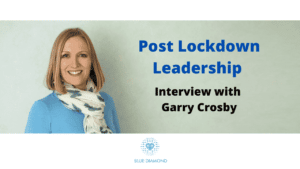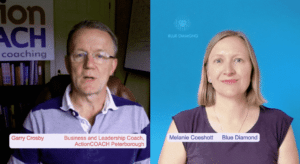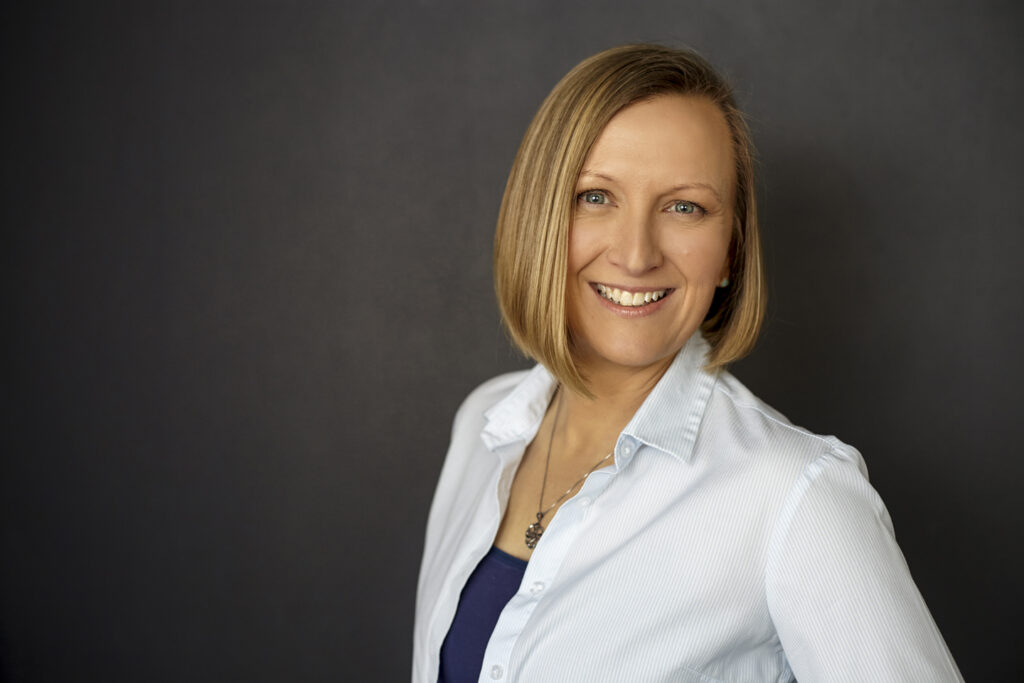 This interview with Garry Crosby forms part of the Blue Diamond Post Lockdown Leadership Review.
This interview with Garry Crosby forms part of the Blue Diamond Post Lockdown Leadership Review.
We discuss what great leadership looks like, how to practice self-leadership, and leadership traits for career success.
In addition, we look at anticipated changes in working practices and key skills for success in the post-lockdown economy.
Watch the interview with Garry Crosby here

Post Lockdown Leadership Review – Interview with Garry Crosby
Melanie Coeshott (MC) – Good afternoon and welcome Gary Crosby. Gary, I know that you are a leadership and business coach today, but this is not what you’ve always done. So, tell us about your background, please.
Garry Crosby (GC) – That’s right Melanie, and good afternoon to you. I have spent most of my adult life in the RAF (Royal Air Force) and had a great time, gallivanting around the world, flying in airplanes that were gathering intelligence, which was great fun.
When I got to the point where I didn’t want to be in the air force anymore, I left to join the industry, where I did a mixture of sales, marketing, and some strategy work before deciding I didn’t really think corporate life was for me and becoming a coach.
So that’s how I ended up where I am today, with my Action Coach franchise.
MC – Excellent, so some great leadership background there.
What does great leadership look like to you?
GC – I think great leaders have got to show a lot of energy and passion. They’ve got to be able to convey the purpose of their business really, really effective and if they can’t show that path towards something that’s more worthwhile or better, then, from my perspective, they’re not really fulfilling their role as a leader. I think about Lord Coe in the 2012 Olympics and that fantastic passion he had for creating something that was great for the UK. I also think that leaders have got to show a fantastic way of connecting with people. If I think back to one of the best bosses that I ever had: a Wing Commander who ran one of the Squadrons that I was flying in. He had this unerring ability to make you feel like you were the most important person in the world, while you were talking to him, and it was a very rare characteristic. I don’t think it’s something that could be taught. So, you could have energy and passion and the ability to connect.
MC – Great, some great tips here.
What do you interpret by self-leadership and how do you personally practice this?
GC – A few things I think of with self-leadership. First of all, you’ve definitely got to have a sense of independence. You’ve got to feel in your own self, that you’re able to make your own way and create your own set of circumstances. So, for me obviously, as a business owner, like you Melanie, you’ve got no boss, you’ve got nobody telling you what to or which direction to go in, so you’ve got to have that real independence of thought. And you’ve got to have that self-reliance as well. You’ve got to realize that the things that you’re putting in place, the things that you’ve got control of, that you’re creating your own circumstances again.
And that’s what I try to do. I try to think of myself as a person who has got complete accountability and responsibility for the path I’m taking.
MC – Great. So, I know that today, you’re working pretty much on your own. I know that you work alongside other people, but in the past, you’ve been responsible for managing and leading a big number of people.
What signs of leadership did you look for from your staff within the organizations that you’ve worked for?
GC – So I think the best opportunity for me to do that was when I was the commanding officer, of one of the RAF’s frontline flying squadrons and with a hundred and seventy-five people to look after.
First of all, I recognized that not everybody wanted to be super ambitious, so that was the first thing.
But when I spotted people who did say to me that they wanted to get on, I was looking for a few things. First of all, the ability to have accountability and ownership and responsibility for the things that they’ve got to do. So, I don’t want anybody at that stage, demonstrating some poor behaviors by blaming others or denying things if things aren’t going particularly well. So that’s really, really important.
And the second thing is the energy and passion that I talked about. You can see that they’re keen to get to the end goal and the one thing that I really was very keen to find was that sense that they were willing to accept additional responsibility. So, going a little bit above and beyond you know, sometimes when you’ve got a Christmas party or a social event, you just want someone to step forward and say “I’ll do that” so those leadership qualities, and that willingness to accept a bit of extra responsibility, was always key in my search for the next group of leaders.
MC – That’s great. So obviously, we’re going through a lot of change at the moment. A paradigm shift in the words of Stephen Covey.
What changes do you anticipate in working practices over the next twelve months?
GC – Yes, it’s difficult. I’m getting a bit tired, if I may be so bold, with this idea of the ‘new normal’ that I’ve heard a lot of people talking about, but I’m encouraging people, whether they’re leaders or managers or employees, to think about what I’ve called OBS, which is Outcome Based Freedoms. Because actually, now’s a great time to start thinking about how to shape your workforce in a way that is focused on the outcomes.
Many business owners have always done this in a way, but they should start asking questions like “why do staff need to commute for a couple of hours every day?” “Why do they need to sit at this desk?” You know face to face for eight hours a day. “Why do they need to face time in order to progress?” because if actually employees are asking for Outcome Based Freedoms, they’d be delivering the outcome of the company, wherever they are. So, that’s an important shift I can see coming.
MC – Absolutely, I love that and I know that’s a phrase that you’ve coined yourself and that you’ve shared on some of your social media posts recently. That’s very good.
How will you lead and manage yourself through this change?
GC – So, for me, I’ve been trying over the last eight or nine weeks now to say to clients “Yes, you are in a very difficult situation”, for most people and businesses being profoundly affected by this, “but the right thing to do here is to look for opportunities and then lead your staff and your team towards those opportunities” because it’s no surprise that some businesses have found different ways of doing things. They’ve found different products or different services that they can offer. And the good leaders, my clients amongst them definitely, will be urging their teams to look for those additional opportunities. So, we might see businesses I think coming out of this in a slightly different shape, with a slightly different feeling to them, offering their services in a different way. That’s going to be really important in the next few weeks.
MC – I can imagine that and you know, as organizations are pivoting, some of the individuals within those organizations are also going to need to pivot and adjust.
What skills do you perceive to be the most important to help us through this period?
GC – Well, it’s a skill that’s relevant now, but I would say is also relevant at any point in your life, whether that’s in your personal life or your business life and I call it, not ‘time management’ but ‘managing yourself through time’ and this is all about really beginning to understand how you use your time. So, going back you mentioned Stephen Covey at the beginning, I always urge my clients to try and determine the difference between what’s really urgent and what’s really important in their business, because many people respond to other people’s ideas of urgency, like them calling and them demanding time and stealing time off you. So, there’s that to think about.
And I also say to people, one of the really good things you can do, is try to put some Immovable Objects in your diary and I know we’ve talked about this before in planning events. That is the idea that rather like your child’s gym class on a Friday evening, which happens regardless of any other thing in the diary. What could you put in your working week, that would always be there and always be honored? Because every time you put something in there and then don’t honor it, then you lose that bit of time, so Immovable Objects, means you’re just going to focus on something, it’s going to be there for an hour, and you’re just going to get something done. How disciplined do you have to be to get something like this done? So that’s a really important quality for me.
MC – Great, so thank you very much for sharing your insights with me today. Very useful.
Obviously, none of us have a crystal ball. But I’m sure lots of the things you’ve spoken about today will be extremely useful to help us go forward. I love the Immovable Objects, I will certainly be putting some of these in my own diary. And also the Outcome Based Freedoms.
Thanks to Garry Crosby ActionCOACH, Business & Leadership Coach Clarity, Focus, Action & Accountability for You and Your Business

Thanks for reading. Check out other Blue Diamond articles to help you take control of your work and life.
Check out the other interviews in the Post Lockdown Leadership Review series

